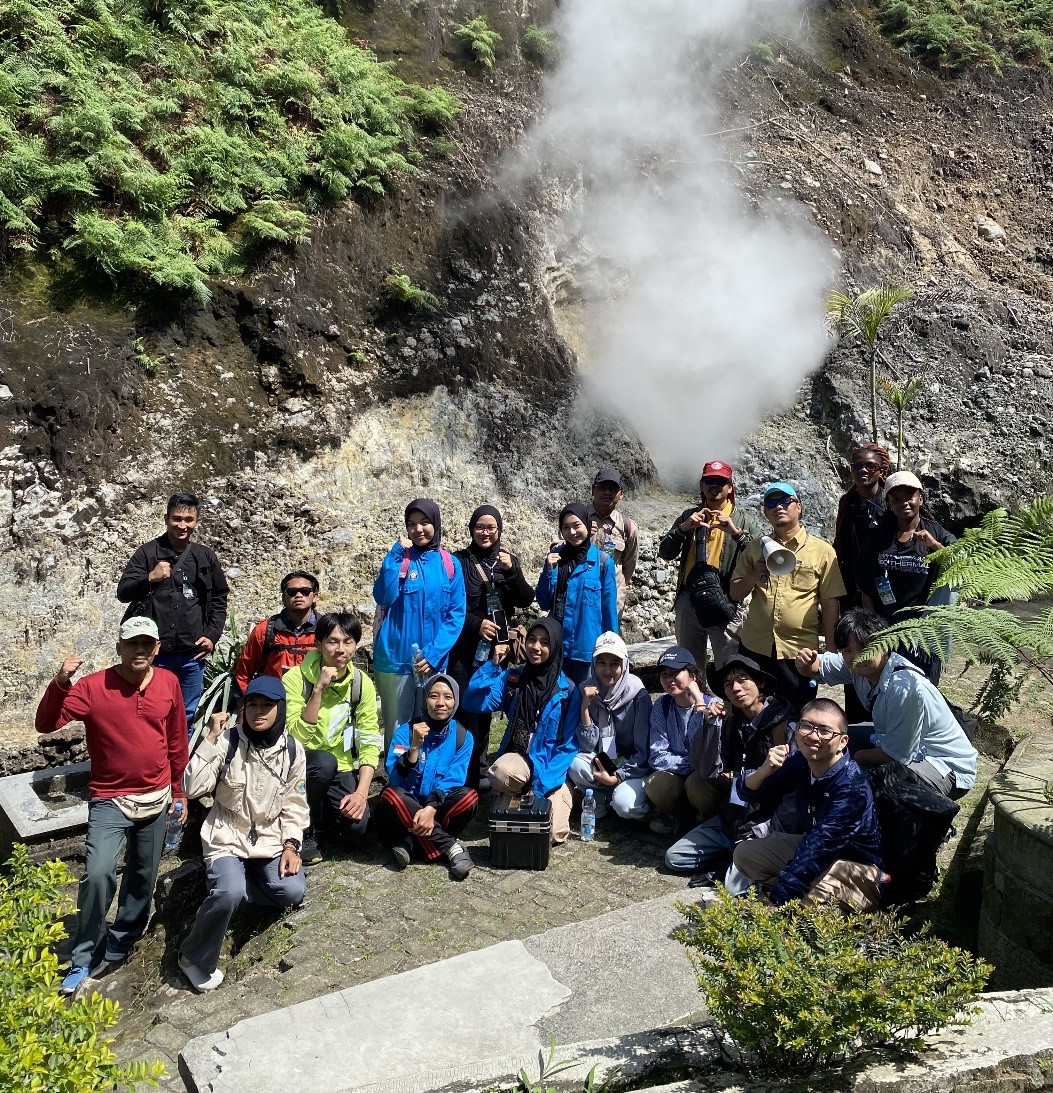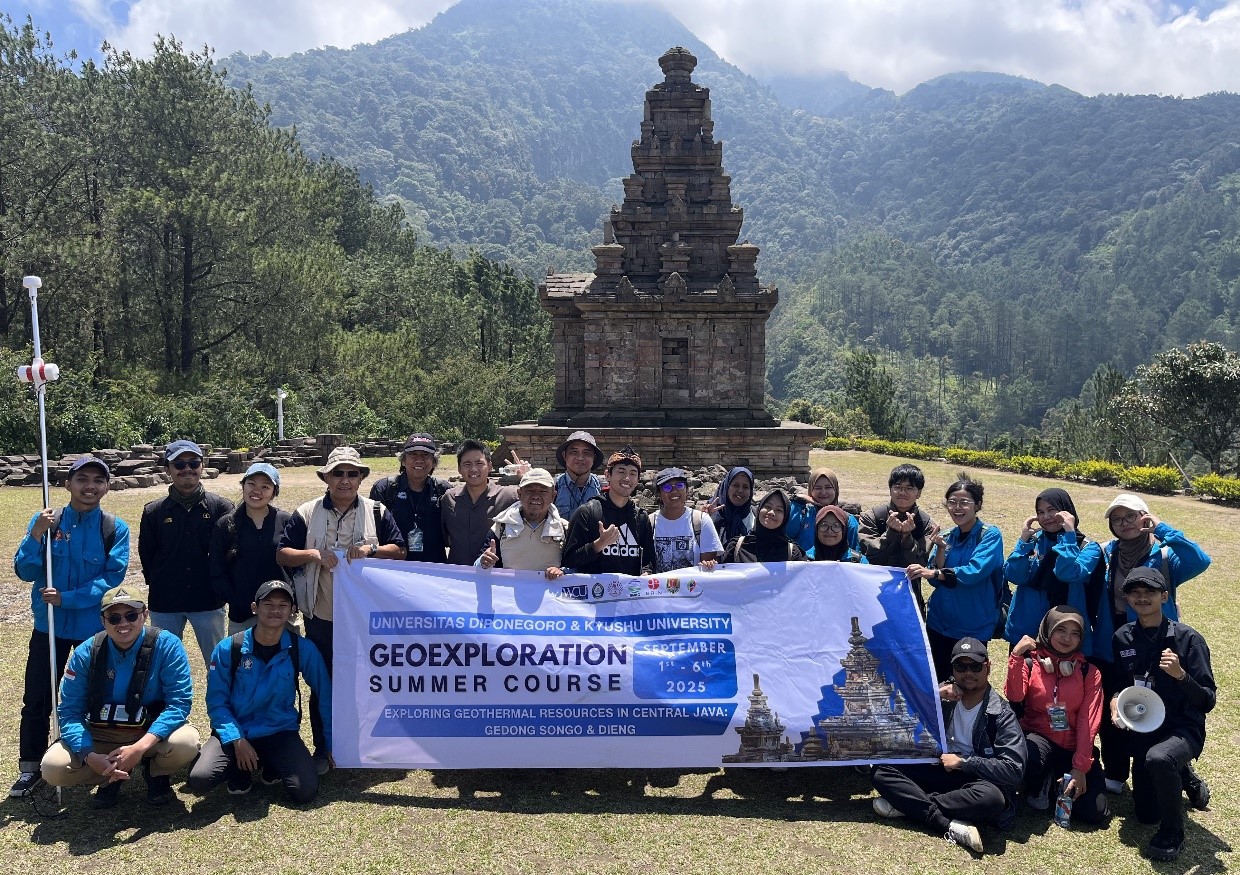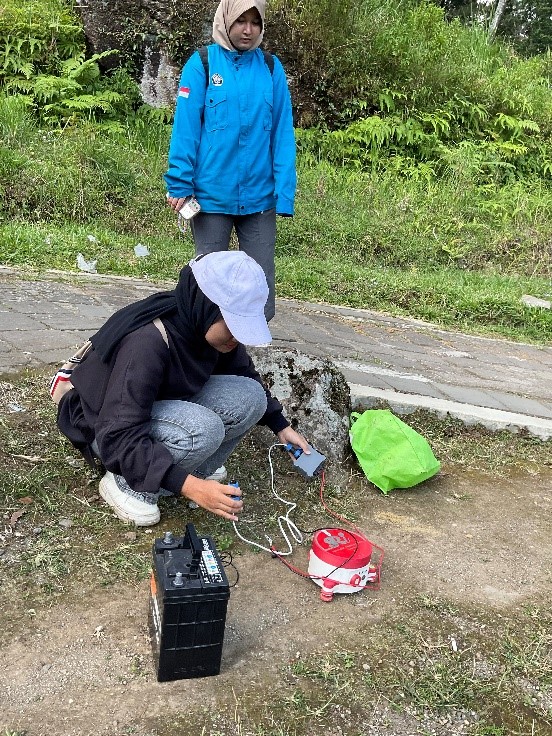The Faculty of Science and Mathematics, Universitas Diponegoro (FSM UNDIP), through the Geophysics Laboratory of the Department of Physics, in collaboration with Kyushu University, Japan, and supported by BMKG and BRIN, organized the Summer Course Geoexploration 2025. This international academic program carried the theme “Exploring Geothermal Resources in Central Java: Gedong Songo Field Study” and took place on 1–5 September 2025 at UNDIP and the Gedong Songo Geothermal Field, Mount Ungaran, in a hybrid format.
This year, the program successfully attracted 278 participants from various countries. A total of 31 students attended onsite (20 from Indonesia and 11 from Japan), while 247 others joined online, representing diverse backgrounds including Indonesia, Japan, France, Nigeria, Nepal, South Africa, Pakistan, Ethiopia, Germany, Afghanistan, Cameroon, and India. Such wide-ranging participation underscored the Summer Course’s role as a platform for knowledge exchange and global networking in the field of renewable energy.

The event was opened at UNDIP with welcoming remarks from the Head of the Department of Physics, representatives from Kyushu University, the Dean of FSM, and Prof. Dr. Ir. Hadiyanto, M.Sc., Director of Reputation, Partnership, and Global Connectivity. Following the ceremony, a series of academic lectures began. Prof. Dr. Eng. Agus Setyawan started with a presentation on the Overview of Mount Ungaran, which covered its geological, tectonic, and volcanic history. This was followed by lectures from Assoc. Prof. Dr. Jun Nishijima (Kyushu University) on gravity methods, Dr. Eng. Udi Harmoko on geomagnetics, Yoga Aribowo, M.T. on geology and geochemistry, and Dr. Agustya from BRIN on passive seismic methods. The first day provided participants with a solid theoretical foundation before engaging in field practice.

On the second day, participants visited the Gedong Songo Geothermal Field, known for its fumaroles, hot springs, and hydrothermal alteration zones. Divided into groups, they conducted geological and geochemical data acquisition, including radon tracer measurements, rock outcrop observations, structural mapping, and hot spring water sampling for geochemical analysis. Meanwhile, the geomagnetic team measured magnetic field intensity to detect anomalies associated with geothermal activity.

Field practice continued on the third day with passive seismic and gravity surveys. The seismic team used portable Seismograf Rakyat Indonesia (SRI) devices from PT Protech Engineering to record natural seismic signals, while the gravity team from BMKG conducted measurements with a gravimeter to map subsurface density variations. This day offered participants valuable hands-on experience in operating geophysical instruments while facing the challenges of real field conditions.



The fourth day focused on data processing. The passive seismic team processed raw signals and conducted subsurface modeling, the gravity team applied corrections to generate two-dimensional models, while the geomagnetic team produced anomaly maps after daily corrections and reduction to the pole. Cross-national discussions took place dynamically, bringing together different methods and perspectives in interpreting results.
The program reached its peak on the fifth day with group presentations. Each team showcased their processed data and preliminary models of potential geothermal reservoirs in the Ungaran area. These presentations highlighted how integrated geophysical methods can support understanding of the geothermal system at Gedong Songo. The closing session also featured reflections from participants, both Indonesian and Japanese, emphasizing academic enrichment, cultural exchange, and the spirit of international collaboration fostered through the program.
Through the Summer Course Geoexploration 2025, FSM UNDIP not only provided a comprehensive academic experience through lectures, field practice, and data processing, but also strengthened global collaboration in geothermal research. The program marked an important milestone in building international academic networks that will drive the advancement of renewable energy in the future.

